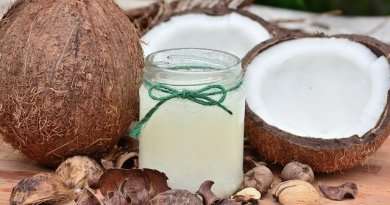Ginger And Its Benefits In Diabetes
Ginger And Its Benefits In Diabetes. Ginger is known for its many medicinal properties. It is used to treat nausea, colds, dizziness, menstrual pain and arthritis.
Ginger has also been shown to reduce blood glucose and improve insulin sensitivity in diabetic patients. However, it is important to talk to your doctor before you add it to your treatment plan.
- It Helps In Reducing Your Blood Sugar Levels
Besides being used as a natural medicine to treat nausea, cold, dizziness, arthritis and menstrual pain, ginger has also been found to help reduce blood sugar levels in people with diabetes. Its effects are attributed to its presence of active compounds like gingerols and shogaols, which are thought to have anti-inflammatory and antioxidative properties.
Several clinical trials have shown that daily consumption of ginger powder significantly decreases fasting blood glucose, hemoglobin A1c (HbA1c), and insulin levels in diabetic patients. The findings of these studies are supported by a recent systematic review and meta-analysis.
One of the major antidiabetic properties of ginger is that it stimulates the body’s own production of acetylcholine, an important neurotransmitter for the control of blood sugar. When acetylcholine is released, it inhibits the breakdown of glycogen and increases the release of insulin, thereby reducing blood glucose.
Ginger is low in glycemic index, and therefore can be safely consumed by diabetics, as long as they follow their physician’s instructions on dietary restrictions. It can be taken fresh or grated, as well as added to stir-fries, soups and smoothies.
In fact, researchers recently found that drinking a cup of hot water with sliced ginger and honey is effective at lowering blood sugar in diabetics. However, because the ginger can interact with certain medications and cause side effects, it’s best to consult your doctor before adding this to your diabetes treatment plan.
Ginger And Its Benefits In Diabetes. Another way to enjoy ginger is to add it to a hot glass of lemonade. This is a refreshing drink that will not only help lower your blood sugar, but also boost your metabolism.
The antidiabetic effects of ginger are also due to the presence of antioxidants and flavonoids, which can prevent complications associated with diabetes such as retinopathy, kidney damage, heart disease, and blindness. Additionally, ginger is rich in a variety of minerals and vitamins, including magnesium, potassium, and iron.
Despite the potential benefits of ginger for diabetes, there is still a lot of research to be done. It’s best to keep your medical provider informed and work with them to develop a treatment plan that works for you. If you want to try adding ginger to your diet, it’s best to start with small amounts and gradually increase the amount as needed.
- It Helps In Managing Your Diabetes Symptoms
Ginger has been used for centuries to cure nausea, cold, dizziness and menstrual pain. It is also helpful in reducing blood sugar levels and managing diabetes.
Ginger is a flowering plant that grows in the Zingiberaceae family and can be found all over the world. Its fresh or dried leaves and stems are often used to flavor many foods, including soups, salads and drinks. It can be roasted, pickled or eaten raw, and is also a popular ingredient in ginger tea.
There is a growing body of research that suggests ginger may be useful for people with type 2 diabetes, particularly those who don’t use insulin or other medications to control their disease. However, more research is needed before the benefits of ginger can be fully understood.
One study showed that a supplement containing ginger extract improved glycated hemoglobin (HbA1C) in type 2 diabetic patients. Another study suggested that ginger powder can lower blood sugar in patients with diabetes who don’t use insulin or other medications.
While more studies are necessary, researchers believe that eating ginger can be helpful in managing diabetes symptoms and lowering your risk for heart disease. It also increases the production of the hormone insulin inside your body.
Ginger And Its Benefits In Diabetes. It is advisable to consult with your doctor before adding any new supplements or making changes to your diet if you have diabetes. Ginger should be consumed in a limited amount and monitored closely to prevent dangerous fluctuations in your blood sugar.
Eating raw ginger root, for example, can help reduce your blood sugar levels. It is a very low-calorie and high-nutrient food that contains a lot of water, protein, dietary fiber and potassium.
In addition, it contains a wide range of vitamins and minerals. It is high in vitamin C, vitamin B6, folate, niacin and iron.
Ginger is a great source of antioxidants, which can help protect your cells from damage and promote overall health. It can also help lower your cholesterol and increase your energy levels.
If you have type 2 diabetes, it’s recommended to consume a minimum of two grams of fresh ginger daily, but more is better. It should be taken with a small amount of honey to balance the spicy taste.
- It Increases The Production Of Insulin Inside The Body
Ginger increases the production of insulin inside the body, which means that it helps regulate blood sugar levels and prevent complications associated with diabetes. It also lowers inflammation, which is a major risk factor for heart disease and other chronic health problems.
Moreover, it lowers cholesterol and triglycerides, which can build up in the blood vessels and increase your risk for cardiovascular disease. It also improves circulation and lowers blood pressure, which can help your heart stay at its peak performance.
The antioxidants in ginger help manage free radicals, which are chemicals that can damage cells when their numbers get too high. They also protect your brain from memory loss and other cognitive impairments by increasing the number of nerve transmitters called neurotransmitters that communicate with the brain.
Research has shown that the compounds in ginger, including shogaol and zingerone, have anti-diabetic effects. They are effective at reducing blood glucose and insulin levels and improving insulin sensitivity in people with type 2 diabetes.
It also has anti-inflammatory properties, which may help reduce your blood pressure and cholesterol. It also helps manage your weight by promoting thermogenesis, which burns fat and calories.
This is because it increases the amount of energy you use to digest food and burn off stored fat. It also helps you feel more full, which makes it easier to eat less and lose weight.
In fact, a 2015 study found that supplementing with ginger powder for three months helped diabetic adults who weren’t taking insulin get better glycemic control. It was a double-blind, randomized, and controlled study, which suggests that it’s possible for ginger to have a direct effect on your blood sugar levels.
Another benefit of ginger is that it has a positive effect on the sex hormones in women with polycystic ovary syndrome. In this study, the intake of a daily dose of ginger and cinnamon powder significantly decreased fasting blood sugar, triglycerides, and insulin levels in women with PCOS after six weeks.
In addition, ginger helps to reduce inflammatory markers like C-reactive protein and hs-CRP. It also can help prevent Alzheimer’s disease and other dementia-related conditions by reducing inflammation in the brain.
- It Helps In Managing Your Weight
Ginger is not just a great addition to your favorite meals, but it also offers many health benefits. It contains antioxidants, minerals, and vitamins and is a good source of potassium and iron.
The antioxidants in ginger help to control the free radicals that wreak havoc in your body, leading to inflammation and a variety of health problems, including diabetes. It also helps to regulate blood sugar levels and increase gastrointestinal motility.
It’s also a good natural diuretic, so it can help to remove excess fluid from your body. This can decrease the risk of complications such as kidney damage, which can occur in people with diabetes.
Ginger And Its Benefits In Diabetes. Antioxidants can also help to suppress your appetite, which can help you to avoid consuming more calories than you need. Combined with an exercise plan, it can help you to lose weight and keep it off.
This is because it contains phytochemicals that boost your metabolism and help your body to burn fat more effectively. It also helps to prevent the formation of new fat cells in your body, which can lead to obesity.
Adding ginger to your diet can also prevent high cholesterol levels and cardiovascular disease. It can also help to improve your insulin sensitivity, which is a key part of diabetes treatment.
You can add it to soups, roasted vegetables, meat dishes, salad dressings, desserts, smoothies, and teas. You can even chew a small piece of it before eating your meals to help boost your metabolism and improve your digestion.
It also helps to relieve nausea and vomiting. It can be consumed as a powder or in the form of ginger tea. It’s best to stick to natural, organic ginger root over processed ginger products.
It’s also an excellent dietary fiber source. It’s low in carbohydrates and calories, so it helps to maintain a healthy weight. It also contains a variety of nutrients, including potassium and vitamin C. The most important thing is to consume it in a moderate amount every day and not overdo it.




